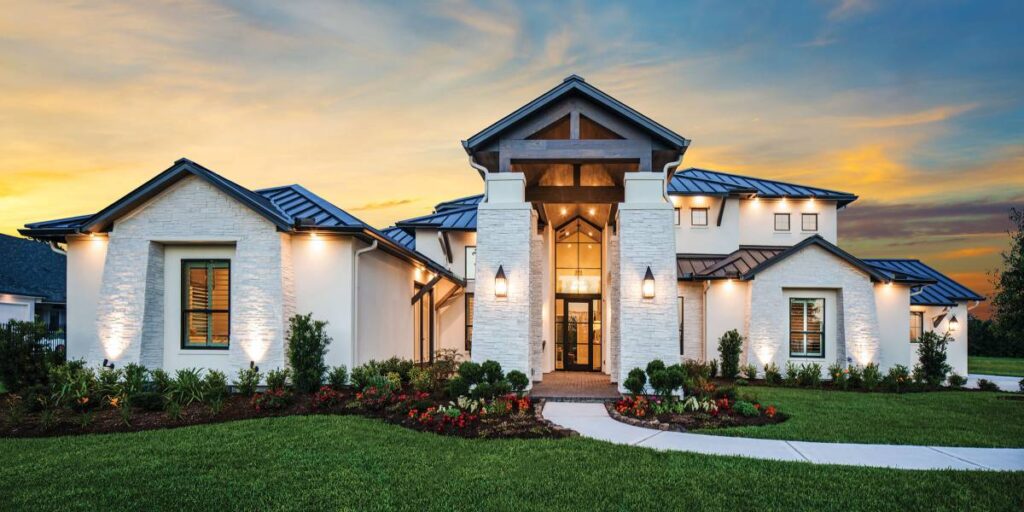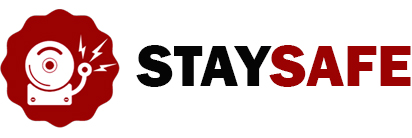Home Security Tips

If you do not have a security system,
follow some of these simple tips to improve your safety
- Don’t let bushes or shrubbery grow to high. Make sure your home or business is visible from the street at all times. Keep all trees and bushes properly pruned. A burglar can hide behind these areas and easily work undisturbed.
- Invest in some quality hardware for your doors and windows. Make sure each door is protected by a deadbolt type of lock. However, it is best not to use locks which require a key to be used on the inside. This could prevent your escape during a fire or other emergency.
- Don’t leave things of value exposed where someone outside can see them if they look inside the house.
- Use outdoor lighting effectively and moderately. You do not have to have your home light up light a baseball field, but simple adequate lighting is best. Also, rotate which lights you turn on and when. Do not use the same light at all times. Burglars watch for a pattern and can easily spot one develop. Do not use timers unless they provide for random activation.
- Make sure all doors and windows are securely locked. The major misconception is that burglars smash their way into their victims homes. Not so. In a majority of cases, the burglar actually enters through a door or window that simply wasn’t locked.
- During the holiday season be especially careful with the trees, gift wrapping, and candles. Do not become complacent or careless.
- Check your electrical extension cords carefully. Any cords that are frayed or damaged should be properly disposed of. Do not overload extensions cords. They are merely designed to add footage to a cord, and not for grouping numerous appliances or lights into one cord. This can overload the cord and cause a fire.
- Store flammable liquids in a tightly closed can, and store all of these materials safely inside a metal cabinet preferably inside the garage and not your house.
- Keep caustic cleaning solutions out of reach of small children. In the event of a poisoning, first call the local fire or police department, or call 911.
To reach the poison control center call
1-800-222-1222
If you presently have a security system
- The best way to assure yourself that it is functioning properly is to test the system on a regular basis. Contact your security professional that installed the system to see what their policy is.
- Have the system inspected at least annually. If the system also contains smoke detectors, test them as well. There are certain procedures that must be followed when testing smoke detectors.
DO NOT LIGHT A MATCH OR OTHERWISE START A FIRE.
- Test the batteries. If you have any battery operated smoke detectors, change the battery whenever you change the clock, spring and fall.
- Contact your security company at least once a year to learn if there have been any improvements to the technology or any upgrades that might benefit you. Most of these can be done with a moderate investment.
Why reducing false alarms is so important
The number one problem facing security systems today is the unnecessary number of false alarms generated by a security system. No system is totally immune from false alarms, but there are many steps that you can take to enhance your systems effectiveness and reliability.
In many areas of the country, police and fire departments have instituted either a registration process, or a schedule of fines for those who cause unnecessary false alarms. Because of this process, Palm Beach County, Florida; has been recognized by The National Burglar and Fire Alarm Association as having the lowest false alarm rate in the nation. As of October 1996 there were over 70,000 registered alarm in the county.
The National Burglar and Fire Alarm Association estimates that 76% of all false alarms are caused by user error. To reduce this number you can take the following simple precautions:
- Make sure everyone that has access to your premise knows how to use the system, has a code to disarm the system, and has a proper password or passcode.
- Arrange to have routine maintenance performed on your system. This includes checking the batteries. If the system is not working right, don’t wait for your scheduled maintenance, call and have it repaired immediately.
- Keep your security company’s number handy. Call immediately if your alarm goes off (this will vary by security company, so check the policy with your own security consultant).
- Use only licensed alarm contractors. Check with your local or state alarm association or local police department to see who is licensed. Most reputable alarm contractors belong to one or more Associations dedicated to reducing false alarms and enhancing system reliability.
- Many municipalities require a building permit or user permit when an alarm system is installed. Shy away from anyone who says they can put a system in without applying for appropriate permits. People like this usually perform lower than acceptable installations, a common cause of false alarms.
- Don’t seek out the lowest priced contracting firm. When was the last time you really got something for nothing. A low price installation may wind up costing you more in the long run if you encounter false alarm fines and penalties.
- Check with your security company before purchasing that new pet, or doing any remodeling.
If you do not have a security system,
follow some of these simple tips to improve your safety
- Don’t let bushes or shrubbery grow to high. Make sure your home or business is visible from the street at all times. Keep all trees and bushes properly pruned. A burglar can hide behind these areas and easily work undisturbed.
- Invest in some quality hardware for your doors and windows. Make sure each door is protected by a deadbolt type of lock. However, it is best not to use locks which require a key to be used on the inside. This could prevent your escape during a fire or other emergency.
- Don’t leave things of value exposed where someone outside can see them if they look inside the house.
- Use outdoor lighting effectively and moderately. You do not have to have your home light up light a baseball field, but simple adequate lighting is best. Also, rotate which lights you turn on and when. Do not use the same light at all times. Burglars watch for a pattern and can easily spot one develop. Do not use timers unless they provide for random activation.
- Make sure all doors and windows are securely locked. The major misconception is that burglars smash their way into their victims homes. Not so. In a majority of cases, the burglar actually enters through a door or window that simply wasn’t locked.
- During the holiday season be especially careful with the trees, gift wrapping, and candles. Do not become complacent or careless.
- Check your electrical extension cords carefully. Any cords that are frayed or damaged should be properly disposed of. Do not overload extensions cords. They are merely designed to add footage to a cord, and not for grouping numerous appliances or lights into one cord. This can overload the cord and cause a fire.
- Store flammable liquids in a tightly closed can, and store all of these materials safely inside a metal cabinet preferably inside the garage and not your house.
- Keep caustic cleaning solutions out of reach of small children. In the event of a poisoning, first call the local fire or police department, or call 911.
The International Association of Chiefs of Police have prepared an excellent paper concerning false alarms right here on the net. Just click here to jump there and read their False Alarm Perspectives.

